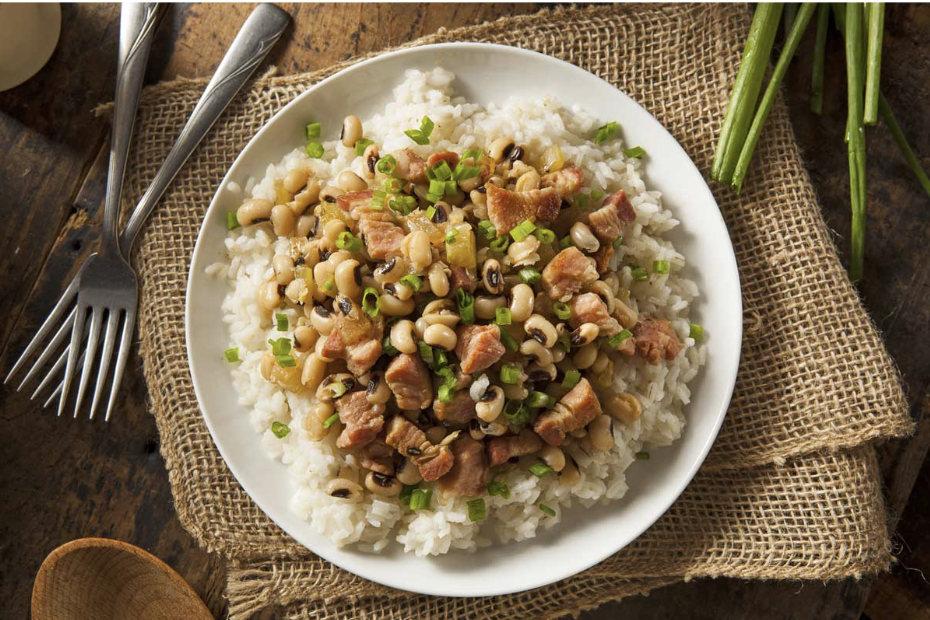History of Southern Food
Welcome back to the Pregnancy Challenges: Nutrition, Race, and Food Deserts in the American South series, a three-part intersectional investigation of race, nutrition, and maternal health. In our first article, we unpacked the relationship between race and food deserts in the South, a relationship that disproportionately affects African Americans during their pregnancies. As I came to learn in my research, that discussion would not be complete without a survey of the history of Southern food, a history in which African Americans play a primary role. The purpose of this next article is to share these histories and investigate their role in the experience of pregnancy today.
History of Southern Food
Why the History of Food Matters
Our health begins with our nutrition. In the first article, Race and Food Deserts in the American South, we learned that low-income, Black women in the South are the most likely to be living in food deserts, which are primarily found in the South. Living in food deserts makes the likelihood of health risks during pregnancy greater. My inquiry led me to wonder if living in food deserts was not the only indicator of increased health risk for Southern Black people during pregnancy. Are the types of foods eaten across the South, within food deserts and without, playing a role as well?
When the United States was born, the South represented a melange of cultures. It is no shock, then, that the food invented in this region is the result of different cultures’ ingredients and techniques coming together to create something entirely new and different. The history of nutrition in the South is complex and multifaceted; the history explains why certain communities are at higher risk of disease than others, yet also provides the blueprint for positive change in the future.
Soul Food: The Southern Food We Know and Love
We all know and love the smell of fried chicken sizzling. Many of America’s most cherished dishes – fried chicken, cornbread, and collard greens, to name a few – have their origins in the deep South, in states like Mississippi and Alabama. It was there that enslaved people, in an attempt to survive their mistreatment, began cooking and consuming whatever foods they could get their hands on, often different animal organs and slaughtered livestock that white slave owners discarded.5 Enslaved people tended their own gardens, growing the leafy vegetables that thrived in the region like collard greens (if their limited free time allowed them to do so). While the diet may not have been balanced, it served its main purpose to ensure the survival of enslaved peoples.5
The name “Soul Food” to describe the dishes produced from this sort of cooking was coined in the 1960s by the Black Power Movement, a time when the word “soul” was widely used to describe Black culture. It was around this time when Black farmers from the rural South moved North, and brought their recipes with them. Soul Food is defined as an “ethnic cuisine”, invented and traditionally prepared by Southern African Americans, but loved by Americans across the nation.6 Today it is lovingly referred to as “Comfort Food,” a fitting nickname considering the deep fried, oily foods are absolutely delicious and good for your spirit. They are not, however, good for your health. The victims of this fact are the very people who created this food for survival: African Americans.
Soul Food is high in starch, fat, sodium, cholesterol, and calories, high levels of which can individually and all-together cause a wide array of health problems. A study conducted by the The Journal of the American Medical Association found that the “Southern” diet was responsible for the 51.6% excess risk of hypertension for black men and 29.2% excess risk of hypertension for black women compared to their white counterparts.2 A study from Diebetologia showed that women who ate more fried food before conception were 88% more likely to experience gestational diabetes.7 Essentially, certain Southern African Americans are at risk of harmful health conditions because of the cuisine created by their ancestors.
Cultivation and Creation: The Expertise of Enslaved Peoples On the East Coast
While Soul Food from the deep south is a large part of the identity of Southern Food, it does not capture the whole picture. On the East Coast, another type of Southern Food was born during the inception of our nation. It was in the Lowcountry, the southernmost coastal region of South Carolina, that the Gullah-Geechee, a group of West African slaves and their descendants, used their traditional African techniques to cook with local ingredients and some of their own.3 The Gullah-Geechee brought okra from their native lands to the US and continued to cook how they did in their homeland, by making one-dish stews. The West Africans mimicked the diet they had on the coasts of Africa while enslaved on the coasts of the US. They cooked mainly with vegetables, fowl, fish, and grains, and thus invented celebrated Southern dishes like Gumbo, Georgian Shrimp and Grits, and Carolina Lowcountry Boil. The Gullah-Geechee often cooked with rice, a plant common in the Carolinas where specific strains were grown and harvested by the Gullah-Geechee. Their rice dishes include Hoppin’ John, made with rice and black eyed peas, and Limpin’ Susan, made with rice, okra, and bacon.3 As people of West African descent fled to the North following the Civil War, many of the strains of rice used to make these dishes were lost.3 As John T. Edge of Southern Foodways Alliance and the Center for the Study of Southern Culture at the University of Mississippi explains, the movement of formerly enslaved people out of the region was “justice [and] progress. And yet if you value the agricultural knowledge that West African peoples brought and then nurtured in the American South, in the Lowcountry, you do lament that loss of knowledge, you do lament that loss of beauty in those rice kitchen dishes”.4 Unlike Soul Food, the dishes created by the Gullah Geechee are not deep fried, but made with nutritious and fresh ingredients, making them ideal for pregnant people then and today.
Hoppin’ John, made with rice and black eyed peas. Photo by Brent Hofacker.
Looking Back to Look Forward
In an interview with NPR, Edge talks about how Southern food has a “central role in Southern identity… it owes to the African-American and immigrant cooks who have historically been left out of the standard narratives the South tells about itself”.1 The growing popularity of Southern food today gives the South a chance to reinterpret itself. A part of the United States that has historically othered and been othered, by sharing the history of its dishes the South may give credit where credit is due – to the Black bodies that have enriched its culture for 400 years. Black Americans’ struggle to consume nutritious foods was born during slavery, and they still deal with the health consequences of that struggle. That being said, Black Americans cultivated American soil and created countless nutritious dishes during their enslavement, especially on the East Coast, that can and should be used in the future to nourish the populations to come. Southern Americans need only to look back at these traditional dishes to nourish their future generations.
In next week’s article, we’ll dive into possible solutions to these challenges to black maternal health that we have discussed so far
References:
Godoy M, Simon S. Why the Story of Southern Food Is as Much About People as Dishes. NPR. https://www.npr.org/sections/thesalt/2017/06/11/532086897/grappling-with-race-class-and-southern-foods-great-debt-of-pleasure. Published June 11, 2017.
Howard G, Cushman M, Moy CS, et al. Association of Clinical and Social Factors With Excess Hypertension Risk in Black Compared With White US Adults. JAMA. 2018;320(13):1338. doi:https://doi.org/10.1001/jama.2018.13467
Donaldson T. Gullah-Geechee Cuisine Is Finally Getting Its Due in Charleston. AFAR Media. Published August 12, 2021. https://www.afar.com/magazine/the-cuisine-that-seasoned-charleston-is-finally-getting-its-due
Chef’s Table. Netflix; 2019.
Wolff A. soul food | Description, History, & Ingredients. Encyclopedia Britannica. Published October 1, 2020. https://www.britannica.com/topic/soul-food-cuisine
Soul food. Wikipedia. Published July 27, 2023. Accessed July 27, 2023. https://en.wikipedia.org/wiki/Soul_food#cite_note-:2-9
Oaklander M. Here’s Why You Should Avoid Fried Food During Pregnancy. Time. Published October 9, 2014. Accessed July 27, 2023. https://time.com/3482653/fried-food-gestational-diabetes/




